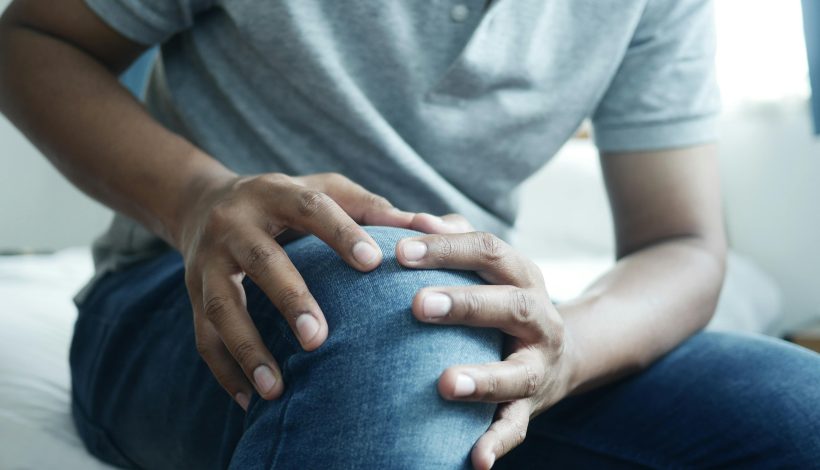By Rosie Moore, DNP, RN, LEHP, LNC, BC-FMP
Introduction
During perimenopause and menopause, declining estrogen and progesterone can affect metabolism, joint health, muscle mass, and inflammation, making weight management and injury recovery more challenging.
Ozempic (semaglutide) has gained attention for weight loss, but it’s important to understand its proper use, potential side effects, and how natural strategies remain the foundation for safe recovery and hormonal balance.
Hormonal Changes and Injury Recovery
Hormonal changes in menopause can:
- Slow metabolism
- Increase abdominal fat
- Reduce muscle mass
- Elevate inflammation
- Delay recovery from injuries
Weight gain can also increase stress on joints, ligaments, and muscles, making sustainable weight and hormone management essential for injury prevention and healing.
Reference: Mayo Clinic, Menopause Symptoms & Management
What is Ozempic?
Ozempic is a GLP-1 receptor agonist originally approved for type 2 diabetes. It works by:
- Slowing gastric emptying
- Reducing appetite
- Helping with blood sugar control
Important: Ozempic is not a magic weight-loss solution for healthy women and should never replace lifestyle strategies for injury recovery or hormone balance.
Potential side effects:
- Nausea, vomiting, diarrhea, constipation
- Rare: pancreatitis, gallbladder disease
- Requires ongoing medical supervision
Emerging Research: Ozempic and Injury Management
Some studies suggest that semaglutide may benefit certain joint injuries, particularly knee osteoarthritis in individuals with obesity.
Findings include:
- Greater weight loss than placebo
- Reduced knee pain
- Improved physical function
Mechanisms may include joint stress reduction via weight loss and anti-inflammatory effects.
References:
- NEJM, 2024: Semaglutide and Knee Osteoarthritis
- PMC, 2022: GLP-1 Receptor Agonists and Anti-Inflammatory Effects
Note: These benefits are specific to medical cases like obesity-related osteoarthritis, not general cosmetic weight loss.
Natural Strategies for Weight, Hormones, and Injury Recovery
Whether or not medications are involved, foundational strategies are critical:
Nutrition (Anti-inflammatory & Hormone-Supportive)
- Healthy fats: olive oil, avocado, fatty fish
- Protein: chicken, eggs, tofu, Greek yogurt
- Fiber-rich carbs: quinoa, oats, vegetables
- Supplements for joints & tissue repair: collagen, magnesium
Sample 1-Day Meal Plan:
| Meal | Foods |
| Breakfast | Spinach & mushroom omelet with avocado |
| Snack | Greek yogurt + berries + chia seeds |
| Lunch | Grilled salmon salad with walnuts and olive oil |
| Snack | Carrot sticks & hummus |
| Dinner | Baked chicken, roasted sweet potato, broccoli |
Exercise & Recovery
- Strength training: 2–3x/week to maintain muscle and protect joints
- Cardio: 3–5x/week for metabolism and cardiovascular health
- Mobility & stretching: Prevent injuries and improve recovery
Lifestyle
- Sleep: 7–9 hours for hormone regulation and tissue repair
- Stress management: Meditation, journaling, or breathing exercises
- Gut health: Fiber, probiotics, and balanced nutrition
Reference: Harvard Health, Menopause and Weight Gain
Ozempic vs. Natural Strategies
| Factor | Ozempic (Semaglutide) | Natural Approaches |
| Purpose | Blood sugar management, weight loss in obesity/diabetes | Hormone balance, injury recovery, sustainable weight management |
| Benefits | Can reduce appetite, promote weight loss, and improve joint pain in OA | Supports metabolism, joint health, muscle mass, and hormone regulation |
| Risks | Nausea, vomiting, diarrhea, pancreatitis, and gallbladder issues | Minimal if done correctly |
| Sustainability | Requires ongoing injections, medical supervision | Lifelong skills support overall health |
| Best Use | Medically indicated obesity or diabetes; obesity-related osteoarthritis | Everyone, especially injury recovery & menopause support |
Safety and Legal Considerations
- Medical supervision is essential
- Side effects: nausea, vomiting, diarrhea, constipation, pancreatitis
- Not for cosmetic weight loss in otherwise healthy individuals
Always consult your healthcare provider before starting any medication, particularly when recovering from injuries or managing hormonal changes.
Conclusion
Ozempic may be helpful for specific medical scenarios, such as obesity-related knee osteoarthritis, but it is not a replacement for natural, foundational strategies.
Focus on:
- Nutrition
- Strength and mobility training
- Sleep and stress management
- Hormone-supportive practices
These steps improve injury recovery, joint health, and sustainable weight management safely and effectively.
References
- Mayo Clinic. Menopause Symptoms & Management
- NEJM, 2024. Semaglutide and Knee Osteoarthritis
- PMC, 2022. GLP-1 Receptor Agonists and Anti-Inflammatory Effects
- Harvard Health. Menopause and Weight Gain
“To receive your free handout with meal plans, exercise charts, and a comparison of Ozempic vs. natural strategies, contact me at jrmnurseconsultants.com.”


